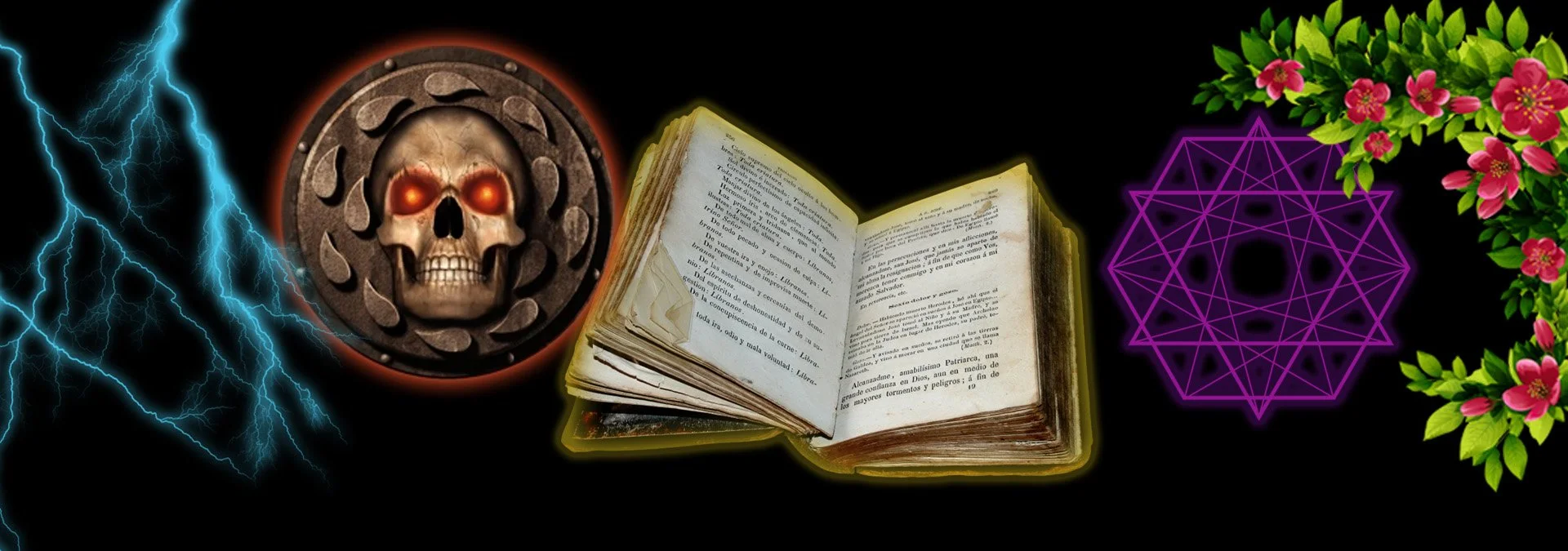How to Describe Your Spell Casting
In the MCU, we see colorful geometric shapes when Dr. Strange casts a spell. When Galadriel taps deep into her magic, her voice booms, her hands go up, and her form turns a shade of green. Zatanna from DC Comics says her spells backwards. Orko from He-Man and the Masters of the Universe wiggles his fingers, says a spell in rhyme form, and then normally winces when things go comically wrong. All of these are examples of spell casters in their own universe using magic in very different ways. At no point do any of them just say “I cast Lightning Bolt.” So let’s use that cinematic experience when it comes to your own characters or NPCs.
Dungeons & Dragons, along with many other RPGs, has a nice variety of spells and types of spell casters to choose from. There are many variables that make up your character - Race, Class, Subclass, Background, Religion, etc. And each of those options can help shape the WAY you cast. Now keep in mind that I’m not talking about the rules/mechanics of casting. What I want to present to you are some interesting ways to add flavor to what your character says and does in order to cast.
USING THE SENSES
The best way to break down your options for adding extra zest to your character’s spell casting is through the senses. You don’t have to use all of them when describing what happens, but maybe pick one or two. Normally, what you’re describing is what everyone else around the table is sensing, but there are some special cases where it’s coming from your character’s point of view. I’ll highlight some of those options as well. So, let’s take it one sense at a time:
Sight: So what does everyone around you SEE when you cast your spells? I like picking a specific color to start with, and then think about the shape of the energy. For instance, a Wizard I play always has blue energy that starts from his eyes before forming whatever spell he’s casting. On the other hand, a Storm Sorcerer may have white bolts of electricity and a gust of wind surround their body. A Light Domain Cleric could have the colors of the Dawn outline their form and emanate from their holy symbol. Finally, I can see a Clockwork Soul Sorcerer with turning cogs and clock hands made of orange energy all around them when they cast. Perhaps even, the hands on the clock represent what level spell their casting.
Sound: Here’s where POV can differ. A Warlock character could hear the whispering of the being they made their Pact with. On the other hand, everyone else may hear creepy whispers every time a Necromancy Wizard casts one of their specialties. For Clerics, the table can hear the ringing of a forge for Forge Domain, or the boom of distant thunder when a Tempest Domain Cleric casts their most powerful spell. Another thing to consider is the sound of the caster’s voice. Is the verbal component a barely audible whisper, or does it grow into a deep booming sound. Do the words sound tranquil and calming, or eery and strong?
Smell: The example that comes to mind is the X-Men’s Nightcrawler. Every time he Bamf’s (Teleports), a hint of sulfur is in the air. For Druids, that could be the sweet scent of flowers. Or other examples could be blood, decay, the ocean, etc.
Touch: Though not as prominent as the first three, there are some ways you can describe what others feel as a character casts a spell. Temperature is a good example. They can feel the warmth of a sun or fiery blaze of hell. Or, they could feel a chill from a breeze or an icy breath. They can get goose bumps or shiver from Necromancy.
Taste: This one could be challenging, but not impossible to add to your descriptions. A Blood Hunter could taste their own blood when using one of their Rites. Another fun one would be a Cleric who happens to have been a baker before they jumped into the adventuring life. So the people they Heal could taste a warm chocolate chip cookie in their mouth.
PUTTING IT ALL TOGETHER
Like I mentioned before, you don’t have to use all 5 senses when thinking about your character’s casting abilities. One or two will suffice. I would also suggest you make that impact on the first few sessions, so that you only have to remind your fellow players what happens, versus giving a full description on each of your turns for the whole campaign. Just for fun, I selected 2 spells: Lightning Bolt & Dispel Magic. I’ll show you just how much variety you can add based on the type of character you’re using.
1) Lightning Bolt
** “Laughing uncontrollably while hopping from one foot to another, the power-crazed Gnome Artificer fires a bolt of Lightning out of his new gauntlet!”
** “My Kenku Sorcerer throws back his hood and caws into the air. Every creature straight ahead hears it echo in their heads as a Lightning Bolt shoots straight ahead from my mouth.”
** “The tail of my Tiefling Wizard whips back and forth in anticipation as I utter the last syllable and draw a lightning bolt in the air with my blue finger. Everyone in front of me feels a tingle of electricity as the Lightning Bolt shoots straight ahead.”
2) Dispel Magic
** “The furry fingers of my Firbolg Druid wrap tight around my wooden staff before slamming it to the ground. A pattern of violet flowers fall to the ground, causing the Fog Cloud around me to dissipate.”
** “I grasp my holy symbol around my neck and utter a prayer to Moradin. The clanging of a forge can be heard in the distance before the Illusion fades.”
** “Chuckling at my friend’s misfortune, my Elf Bard strums a chord on my lute and sing the words ‘Open your eyes,’ in a calming melody to remove the Blindness spell.”
CONCLUSION
So what do you think? All better than just pronouncing to the group, “I cast Lightning Bolt,” right? Again, it’s all for flavor. Casting your spells in this way doesn’t change the mechanics of how it’s done, but it does make it more fun for you and for everyone else around the table. It brings more energy and excitement. Give it a try next session. As always, have fun!



